The number of patients has increased dramatically, so doctors and nurses in respiratory treatment departments have to work continuously, are under more stress, and are not allowed to take leave during this disease season.
Influenza A, pneumonia... "attack" children
Within just one month, both sons of Ms. Le Ngoc Phuc Hung, in Binh Loc ward, Dong Nai province, took turns being hospitalized due to pneumonia. The second child, just over two months old, had to be hospitalized twice, and the second time was only one week after the first. Initially, the baby was only discharged with a few hours of mild cough and phlegm, so Ms. Hung and her husband took him to the hospital for examination and treatment immediately.
“But this time, the baby was in worse condition, had concave breathing, and had difficulty breathing, so the doctors prescribed CPAP (used for children with respiratory failure) and kept him in the Intensive Care Unit for two weeks. Now, the baby is better, but we still don’t know when he will be discharged. My husband and I have had to quit our jobs to take turns taking care of our baby for the past few weeks,” Ms. Hung confided.
 |
| The doctor re-examined Ms. Hung's son who had pneumonia and was being treated at Dong Nai Children's Hospital. Photo: Bich Nhan |
As soon as her son coughed, Nguyen Thi Bich Hanh's family in Tran Bien Ward, Dong Nai Province took him to the doctor and treated him at home. However, after 2 days, the baby had to be hospitalized and had to use CPAP and oxygen due to pneumonia. At nearly 2 months old, with a weak immune system, the baby is also susceptible to more serious illnesses.
Ms. Hanh worried: “The doctor checked and found that the baby was positive for influenza A and pneumonia is a complication caused by the flu. The baby is too young to have severe pneumonia, I am even more worried because I am afraid that the disease will recur in the future.”
Master - Doctor Tran Le Duy Cuong, Head of the Respiratory Department, Dong Nai Children's Hospital said: Children with bronchial asthma and severe pneumonia account for 85% of the number of patients in the department. Among them, children under 3 years old are susceptible to severe progression, the younger they are, the more likely the disease will become more severe.
“In many cases, we suspect that the patient has influenza A so we do tests. The results show that the child has influenza A and is infected with mycoplasma bacteria, causing infection, pneumonia and continuous high fever. In previous years, we only recorded sporadic cases, but this year, more children are infected with this type of bacteria. This type of bacteria causes the disease to spread quickly, leading to a rapid increase in cases. However, most children still respond to the treatment regimen and can recover after about 5-7 days of treatment,” Dr. Cuong shared.
According to records, not only in public hospitals, but also in private hospitals, the number of pediatric patients with respiratory diseases has increased both in outpatient visits and inpatient stays. On average, Au Co Hospital receives 160-190 pediatric patients for respiratory diseases every day. Inpatient rooms are also full.
Lack of hospital beds for children's treatment
Doctor Cuong said: For about a month now, the department has been in a state of no more empty beds, even lacking hospital beds. The department's target is 100 beds, but there are days when the department treats 105-110 patients, so they have to add more beds in the hallway. On average, each day, the department receives about 20 new patients.
To provide beds for patients, doctors allow children who are temporarily stable to be discharged from the hospital by switching from injectable medication to oral medication (which can be used at home). This reduces the risk of cross-infection and the hospital has more beds for new patients.
 |
| Overloaded, the hospital had to add extra beds in the hallway. Photo: Bich Nhan |
Currently, the department has 6 doctors and 16 nurses in charge of treating and caring for more than 100 inpatients and outpatients.
“During the winter season, we shoulder the workload for each other and are not allowed to take leave and have to work overtime. There are days when doctors on duty still have to stay at work because the number of patients admitted to the hospital increases,” Dr. Cuong shared.
Never buy medicine for children to take without permission.
Specialist Doctor II Nguyen Van Suu, Deputy Medical Director, Head of Pediatrics Department, Au Co Hospital recommends: Parents should absolutely not be subjective and should not arbitrarily buy medicine to treat their children. When children show signs such as: rapid breathing, difficulty breathing, high fever that is difficult to reduce, refusing to breastfeed or refuse to eat... they should be taken to a medical facility for examination and treatment immediately.
To prevent diseases for children, in addition to vaccination, personal hygiene, and a clean house, parents need to supplement a reasonable nutritional regimen: adequate water, vitamins and minerals, a complete and reasonable nutritional regimen, helping children increase their resistance to prevent diseases.
Specialist Doctor II Nguyen Van Suu, Deputy Medical Director, Head of Pediatrics Department, Au Co Hospital added: Among the cases examined and hospitalized, doctors have performed tests, many children tested positive for influenza A, accounting for about 1/3 of the cases.
“Currently, the influenza A epidemic in children is at its peak. The number of cases is increasing and spreading rapidly because children have gone to school. The most worrying complications when children get influenza A are pneumonia, laryngitis, and even respiratory failure. Therefore, when children are detected with the flu early, early intervention will limit the dangerous complications that may occur,” Dr. Suu emphasized.
According to doctors, from now until the end of the year, respiratory and infectious diseases are still high and tend to increase. In addition to children, the elderly and pregnant women also need to be highly vigilant during this season. Getting vaccinated against influenza and pneumococcus, washing hands regularly, wearing masks in public places... are important factors to prevent disease.
Bich Nhan
Source: https://baodongnai.com.vn/xa-hoi/202510/nhieu-benh-vien-kin-giuong-do-tre-mac-benh-ho-hap-tang-cao-2f800d2/




![[Photo] Ho Chi Minh City is brilliant with flags and flowers on the eve of the 1st Party Congress, term 2025-2030](https://vphoto.vietnam.vn/thumb/1200x675/vietnam/resource/IMAGE/2025/10/10/1760102923219_ndo_br_thiet-ke-chua-co-ten-43-png.webp)
![[Photo] Opening of the World Cultural Festival in Hanoi](https://vphoto.vietnam.vn/thumb/1200x675/vietnam/resource/IMAGE/2025/10/10/1760113426728_ndo_br_lehoi-khaimac-jpg.webp)

![[Photo] Unique Phu Gia horse hat weaving craft](https://vphoto.vietnam.vn/thumb/1200x675/vietnam/resource/IMAGE/2025/10/10/1760084018320_ndo_br_01-jpg.webp)


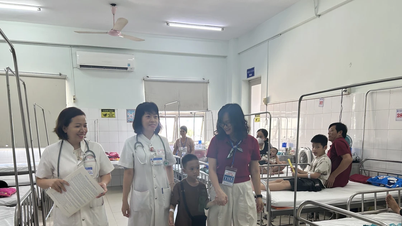




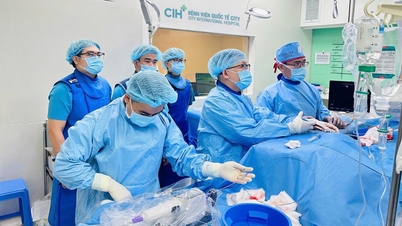


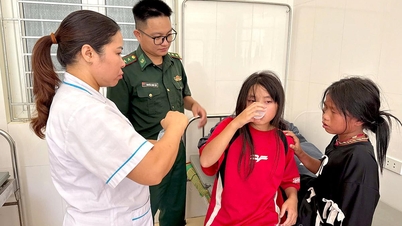





































































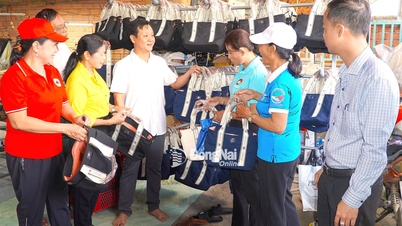
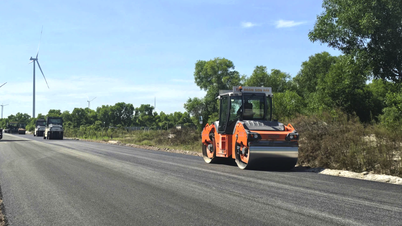
















Comment (0)